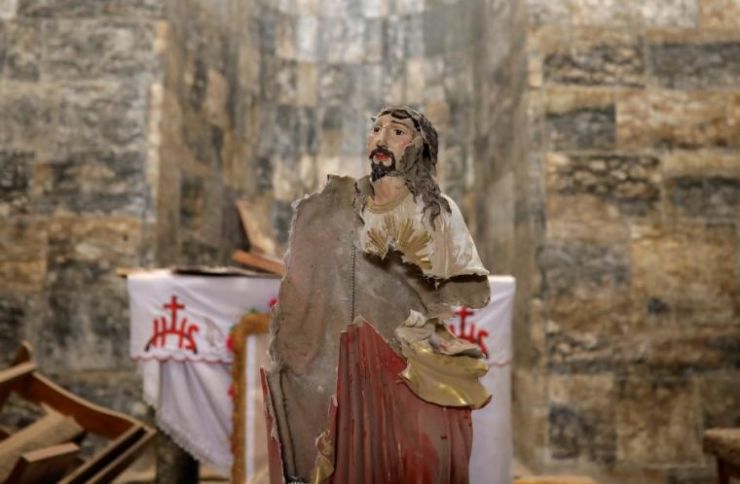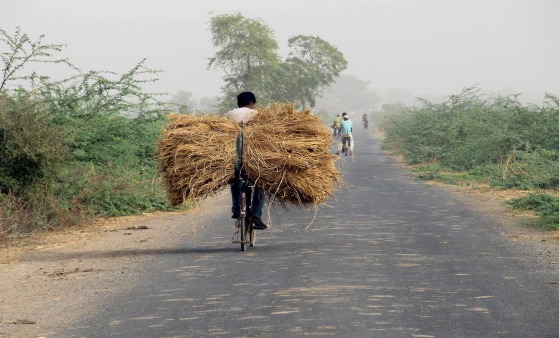
As governments try to combat the spread of COVID-19, there has been a resurgence of deadly attacks by the Islamic State in Iraq over two years after the group's territorial defeat.
According to reports, militants aligned with the jihadi group have launched a series of attacks in the last week as they are trying to take advantage of gaps in security protection in Iraq.
Attacks in Iraq's Diyala and Salahuddin provinces have resulted in the killings of security personnel and have also damaged sources of electricity.
"Amongst all the Corona Virus news there has been no mention of the massive crisis in Iraq," Andrew White, an Anglican vicar who spent years serving in Baghdad, warned followers on Facebook. "Many people have been killed by gun fire and morters. The sad fact is ISIS has returned in force."
"Some politician friends say it is like ISIS returning on steroids," White added. "They seem more empowerd now than ever before. We need serious prayer that order will be restoredi. Things are truly desperate."
The attacks are creating fear that the militant group is resurging as governments are devoting their resources to combat the spread of the novel coronavirus, according to The Military Times.
Since its territorial defeat in late 2017, the Islamic State had lost the ability to carry out large-scale military operations. The group has also gone into hiding with reports that militants are quartered now in caves located in northern Iraq.
"It's a real threat," Qubad Talabani, deputy prime minister of the northern Kurdish region of Iraq, told the news outlet. "They are mobilizing and killing us in the north and they will start hitting Baghdad soon."
According to Talabani, the Islamic State is taking advantage of a "gap" between Kurdish forces and the Iraqi military in Iraq.
Salahuddin council member Subhan Jiyad told Al-Monitor that the first of several Islamic State attacks in a 24-hour period began just before devout Muslim security personnel was set to enjoy a pre-dawn meal last Saturday, May 2.
Another source who was not named told the Arab media site that Sunni locals from the Albu Issa tribe were among those killed.
According to Al-Monitor, the first attack occurred in the town of Mukashifa, a Sunni-majority town that lies on a road that links Baghdad with Tikrit. The city is northwest of the town of Samarra, which not only contains a pilgrimage site for Muslims but is also the hometown of deceased Islamic State leader Abu Bakr al-Baghdadi.
"Six members of the local Popular Mobilization Units were killed in the attack on a checkpoint," Jiyad explained. "Then, when reinforcements were sent in, three more were killed by an improvised explosive device set by IS."
Middle East Eye reports that the attack near Samarra began in the early hours of the morning when six youth security fighters, who were preparing their pre-dawn meal, were burned and killed by Islamic State militants.
After setting explosive devices that killed three more, Islamic State fighters attacked a police station around 9 p.m. that night in the Zaghaniya village of Diyala, about 35 miles north of Baghdad.
Iraq's Security Media Cell disclosed that at least four police officers were killed in the attack and 10 others were injured.
The media cell on Sunday said that the Islamic State attacked PMU forces located just south of the city of Tikirt, about 96 miles from Baghdad.
Although some fear that the attacks could be an indication that the group is trying to regain a foothold in Iraq, one military officer who spoke with Middle East Eye said that the "two operations were not high profile and did not mean that IS has regained its ability to carry out major operations."
The officer blamed "neglect and relaxation" by security forces for allowing such attacks to occur.
"The same mistake always recurs," the senior military officer was quoted as saying. "Calm breeds relaxation, speed creates confusion and the two lead to disaster."
Clashes between the PMF, an Iraq-sponsored coalition of about 40 militias, and Islamic State fighters continued through Monday in Salahuddin as well as other parts of Iraq, according to Newsweek.
The series of Islamic State attacks come after the U.S. has drawn down its troop presence in both Syria and Iraq. It also comes as Turkey's military activities against Kurdish rebels in Syria are hampering the U.S.-led international coalition's counter-Islamic State efforts, according to Military Times.
In Syria, the Islamic State is also said to be responsible for the killing of six soldiers who were killed when their vehicle struck a landmine in the Homs province, as reported by the Syrian Observatory for Human Rights last Thursday.
On April 9, Islamic State fighters reportedly attacked government-held positions near the town of Sukhna in the Homs province. According to Military Times, 32 troops and 26 Islamic State fighters were killed during two days of fighting in the town.
United Kingdom military intelligence had reported that a group of Islamic State extremists was hiding out in a series of caves northeast of the Bayji, an Iraqi city about 130 miles north of Baghdad.
In a press release Wednesday, the Royal Air Force announced that two of its Typhoon FGR4 planes joined U.S. aircraft in attacking the caves in northeast Iraq on April 28.
"The Typhoons dropped precision-guided Paveway IV bombs and about [10 Islamic State] militants were killed in the joint UK-US strike," the Royal Air Force said. "The raid was carried out following intelligence that had identified the location of the Daesh cell, which was operating in the Hamrin mountains, northeast of the Iraqi town of Bayji. The RAF jets targeted six caves, while US strikes were carried out on four other caves.
Courtesy of The Christian Post




